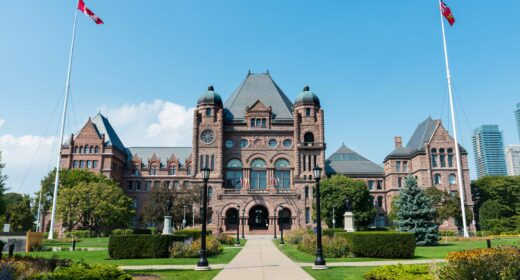On May 17, 2016, the government introduced Bill C-16, An Act to amend the Canadian Human Rights Act and the Criminal Code, sponsored by Ms. Jody Wilson-Raybould (Minister of Justice and Attorney General of Canada, Liberal). Note that this blog post will focus on the human rights elements of the Bill, and not touch on the amendments to the Criminal Code.
The purpose of this Bill is to include “gender identity” and “gender expression” as prohibited grounds of discrimination in the Canadian Human Rights Act (“Act”); more specifically, to protect transgender individuals from discrimination. The proposed amendments would change section 2 (Purpose) and subsection 3(1) (Prohibited grounds of discrimination) of the Act. Although several Canadian jurisdictions recognize discrimination against trans persons to fall within the sphere of sex-based discrimination, many argue this is insufficient to fully protect this vulnerable group.
The Act applies to employees who work for federally regulated workplaces, and is aimed at ending discriminatory practices. Its local provincial counterpart, the Human Rights Code of Ontario, already includes the terms “gender identity” and “gender expression” as prohibited grounds of discrimination in terms of employment and harassment, among other things.
The Bill was introduced and passed first reading on May 17, 2016, followed by a second reading and referral to committee in the House of Commons on October 18, 2016. On this date, the Bill was referred to the Standing Committee on Justice and Human Rights. Only Conservative members of parliament voted against this referral.
During the second reading on October 18, 2016, Ms. Wilson-Raybould took the time to express various reasons why she was of the opinion that this Bill was necessary:
“The bill addresses a fundamental issue of equality and human rights, the discrimination and hate crimes experienced by trans and gender diverse Canadians.”
She stated how trans people make the same important contributions to our society as does every other Canadian, but face harder challenges and more obstacles. They have to overcome misunderstandings, prejudice, and hostility because of their gender identity or expression.
During her speech, Ms. Wilson-Raybould provided a working definition for both “gender identity” and “gender expression”:
“The term ‘gender identity’ is a person’s internal or individual experience of their gender. It is a deeply felt experience of being a man, a woman, or being somewhere along the gender spectrum. Gender identity is a profound matter of self-identity. It shapes one’s self-understanding.”
“Conversely, ‘gender expression’ is how a person publicly presents their gender. It is an external, or outward presentation of gender through aspects such as dress, hair, makeup, body language, or voice. Trans and gender diverse persons are among the most vulnerable members in society.”
Although she provided the above definitions, the Act would purposely exclude a definition for either, which is consistent with the majority of prohibited grounds under the Act. This is important, as many expressions cannot be fully captured by a single definition, given that concepts evolve over time and will often be determined by fact-specific situations.
The Bill, Ms. Wilson-Raybould continued, is meant to reflect Canada’s commitment to diversity and equality, and ensure the protection of all Canadians, especially those that fall within a more vulnerable sphere:
“With the bill, we say loudly and clearly that it is time to move beyond mere tolerance of trans people. It is time for their full acceptance and inclusion in Canadian society.”
Studies completed over 5 years ago suggest there is a trans population of approximately 500 in Ontario. They reported significant employment barriers, and many had been refused employment or fired because they were trans. These individuals are significantly under-employed, despite generally high levels of education. As a result of the barriers they face, more than half of them are clinically depressed, with almost half having attempted suicide in the past. These difficulties are significant and deserve our attention, Ms. Wilson-Raybould said. She stated:
“When a person loses the opportunity to work or faces persistent discrimination, we all lose potential contributions to our society, to our workplaces, and the Canadian economy. Depriving individuals of freedom to make for themselves the lives that they are able and wish to have undermines their ability to participate in society.”
Whether the Bill is necessary from a legal standpoint – that is, whether it would add anything substantive to the law to protect transgender Canadians – was a point of opposition raised by Michael Cooper, Conservative, although he agreed that the purpose behind the Bill was a worthy cause. He explained how “sex” and “sexual orientation”, existing prohibited grounds of discrimination in the Act, already protect the transgender community. Therefore, it was suggested that this Bill would simply maintain the status quo. In the end though, Mr. Cooper supported the Bill going to Committee, agreeing with it in principle.
It will be interesting to see whether this Bill gets passed. If it does, hopefully it sets the tone for positive changes and a better inclusion of our transgender community.
To quote from the Prime Minister, “Canada is stronger because of its diversity, not in spite of it.”
To learn more about human rights and discrimination in the workplace, contact our Labour Law Group.


